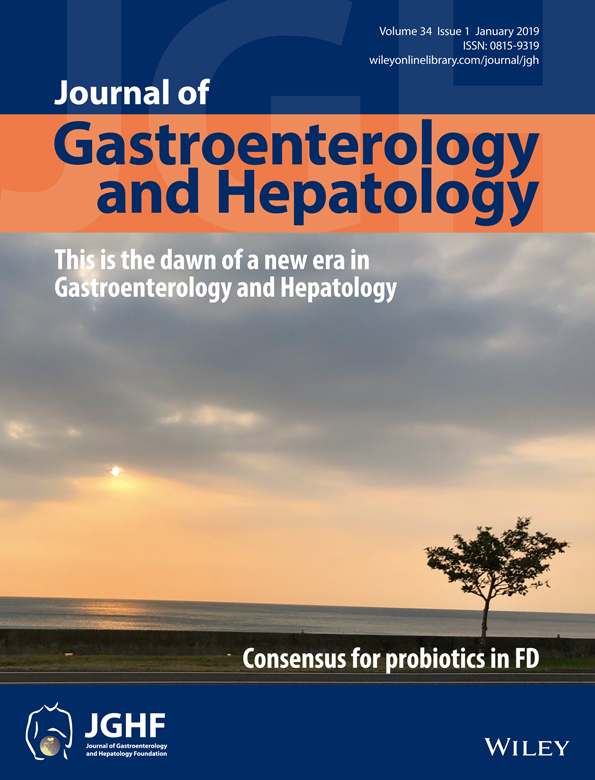Impact of sarcopenia on the risk of advanced colorectal neoplasia
Abstract
Background and Aim
Sarcopenia is a pathological condition characterized by the progressive loss of muscle mass and increased amount of visceral fat. Recent evidence has revealed that sarcopenia is associated with certain diseases. However, the impact of sarcopenia on colorectal neoplasia has not been documented clearly. We studied the association between sarcopenia and advanced colorectal neoplasia in a large screening population.
Methods
This cross-sectional study included 14 024 asymptomatic adults who underwent first-time screening colonoscopy. Sarcopenia (class II) was defined as an appendicular skeletal muscle mass (ASM)/bodyweight (%) value more than two standard deviations below the mean for healthy young adults. ASM was estimated using bioelectrical impedance analysis.
Results
In a multivariable model adjusted for age, sex, obesity (body mass index ≥ 25), smoking status, alcohol intake, regular exercise, and family history of colorectal cancer, the odds ratio (OR) for advanced colorectal neoplasia on comparing participants with sarcopenia (class II) to those without sarcopenia (class I + II) was 1.52 (95% confidence interval [CI], 1.23–1.86). Further adjustment for metabolic parameters attenuated this association, but the association was still significant (OR, 1.34; 95% CI, 1.07–1.68). Furthermore, the multivariable (traditional risk factors)-adjusted OR associated with a 1% decrease on the introduction of ASM/weight% as a continuous variable in regression models was 1.04 (95% CI, 1.01–1.07) for advanced colorectal neoplasia.
Conclusions
Our findings indicate that sarcopenia is significantly and progressively associated with the risk of advanced colorectal neoplasia. This association might be explained by metabolic factors that could be potential mediators of the effect of sarcopenia.




